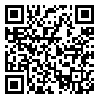Volume 5 - Vol5,Medical Ethics and History of Medicine
ijdld 2005, 5 - Vol5,Medical Ethics and History of Medicine: 81-89 |
Back to browse issues page
Download citation:
BibTeX | RIS | EndNote | Medlars | ProCite | Reference Manager | RefWorks
Send citation to:



BibTeX | RIS | EndNote | Medlars | ProCite | Reference Manager | RefWorks
Send citation to:
Jafarian A, Sadeghi S, Parsapour A, Emami Razavi H. BRAIN DEATH AND INFORMED CONSENT IN CADAVEROUS TRANSPLANTATION,THE ETHICAL VIEW. ijdld 2005; 5 :81-89
URL: http://ijdld.tums.ac.ir/article-1-5043-en.html
URL: http://ijdld.tums.ac.ir/article-1-5043-en.html
Abstract: (5712 Views)
Background: Nowadays, many progresses have been occurred in medical science and transplantation process. Transplantation is now a life- saving standard treatment for some end stage diseases. Although the organs from brain death donors, are the best resource for cadaverous transplantation, there are many controversies among physicians about it's definition. The other important issue in transplantation is disparity between the supply and demand of organs. Because of the increasing demand for cadaverous organs it is necessary to use some new methods to fascilitate the availability of these resources. What is noteworthy is that each of these methods has some essential ethical issues that should be observed. Surely regarding these issues would prevent the future harms to human being and society.
Methods: For compiling the article, we searched in pubmed and ovid databases for keywords of cadaverous transplantation, brain death, medical ethics, informed consent.
Results: In this article, after a review of transplantation statistics in Iran and other countries we presented a definition for brain death and some methods to expand donor pools. Then ethical views in brain death and informed consent process for cadaverous organs transplantation was discussed.
Conclusion: In using cadaverous organs for transplantation, informed consent and respect to autonomy are very important. All people in the society are authorized to accept or refuse organ donation after their death and , physicians can only encourage and support them.
Methods: For compiling the article, we searched in pubmed and ovid databases for keywords of cadaverous transplantation, brain death, medical ethics, informed consent.
Results: In this article, after a review of transplantation statistics in Iran and other countries we presented a definition for brain death and some methods to expand donor pools. Then ethical views in brain death and informed consent process for cadaverous organs transplantation was discussed.
Conclusion: In using cadaverous organs for transplantation, informed consent and respect to autonomy are very important. All people in the society are authorized to accept or refuse organ donation after their death and , physicians can only encourage and support them.
Keywords: Cadaverous organ transplantation, Brain death
Type of Study: Research |
Subject:
General
Received: 2013/10/9 | Accepted: 2013/10/9 | Published: 2013/10/9
Received: 2013/10/9 | Accepted: 2013/10/9 | Published: 2013/10/9
| Rights and permissions | |
 |
This work is licensed under a Creative Commons Attribution-NonCommercial 4.0 International License. |





